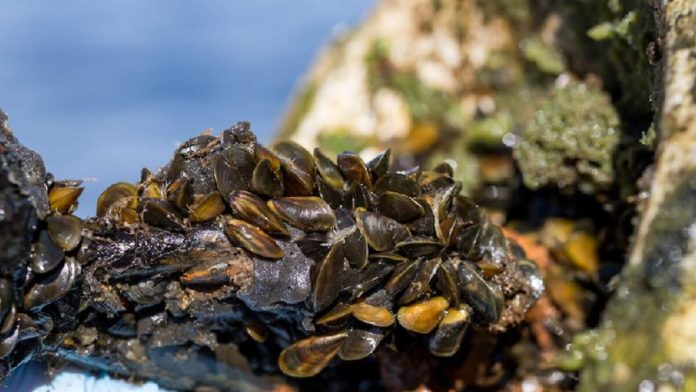Southern California is facing a new environmental challenge as invasive golden mussels have been detected in two major lakes: Silverwood Lake in San Bernardino County and Pyramid Lake in Los Angeles County. This marks a significant spread from their initial discovery last fall at the Port of Stockton in the Sacramento-San Joaquin Delta, the first known appearance of the species in North America.
The golden mussel, native to China and Southeast Asia, is known for its rapid reproduction and ability to clog water infrastructures, disrupt ecosystems, and outcompete native species. The mussels have now traveled over 250 miles south through the State Water Project, raising concerns about the potential impact on California’s water infrastructure and aquatic ecosystems. The California Department of Water Resources and the California Department of Fish and Wildlife have confirmed the presence of the mussels in these lakes, which are crucial for both drinking water delivery and recreation for many Californians.
The spread of golden mussels poses significant threats, as they can block municipal and industrial water intakes, harm native species, and alter water chemistry by filtering out phytoplankton. According to SFGATE, there are currently no effective methods to eradicate the mussels once they are established, making prevention the primary strategy.
In response, new protocols have been implemented at Silverwood Lake and Pyramid Lake to prevent further spread. These include cleaning, draining, and drying boats to avoid transporting the mussels to uninfected areas. The California Department of Fish and Wildlife is coordinating efforts with other state and federal agencies to monitor and manage the situation. The California Department of Fish and Wildlife has urged the public to report any suspected sightings of golden mussels to help contain their spread.
The infestation highlights the vulnerability of California’s interconnected water systems, which are vital for urban, agricultural, and recreational needs. Experts warn that the next two years will be critical in controlling the spread of the golden mussel, and ongoing research is focused on finding effective management solutions. As reported by Cal Coast Times, the economic and ecological impacts could be severe, affecting water supply reliability, increasing maintenance costs, and disrupting ecosystems.

Recent Comments